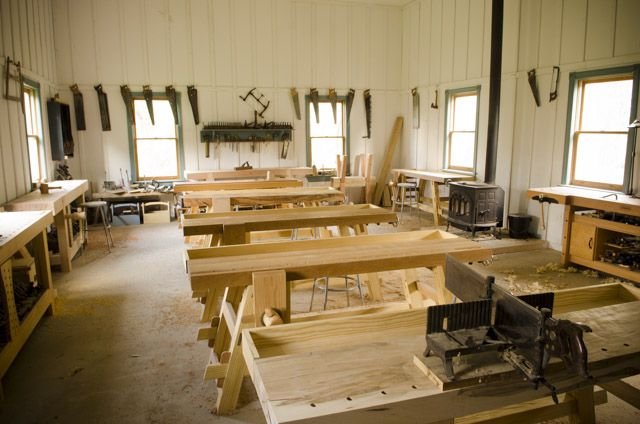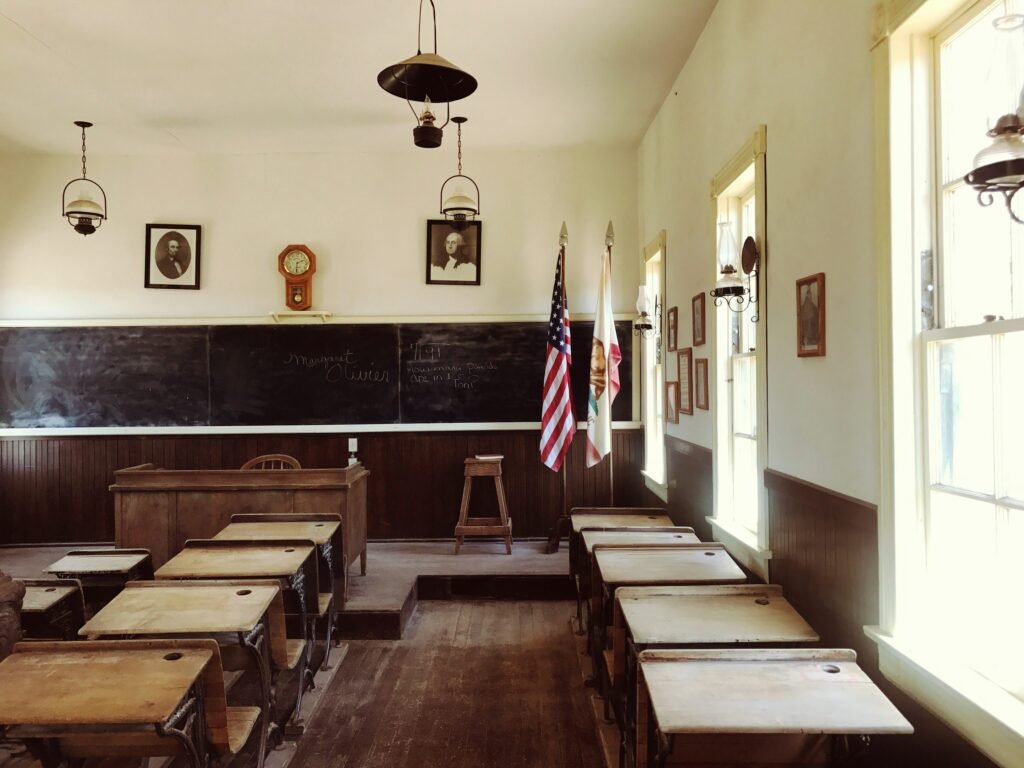As education evolves, so do school curriculums, but not always for the better. Over the years, several school subjects that once shaped well-rounded, practical thinkers have quietly disappeared from the classroom.
These forgotten school subjects not only offered essential life skills but also nurtured creativity, independence, and critical thinking.
In today’s fast-paced digital world, it might be time to bring back these lost lessons and reimagine how we prepare students for life beyond tests and grades.
Ready to turn back the clock? Here are 10 forgotten school subjects we need back now!
Cursive Writing: More Than Just Good Penmanship
Many schools have phased out cursive, but studies show it boosts fine motor skills, memory, and reading comprehension. Cursive also allows students to read historical documents and write with flair.

Once a must in every classroom, cursive writing taught kids to form smooth, flowing letters—a skill that was more than just fancy handwriting. It was about writing quickly yet clearly and having pride in your work. Studies show it boosts memory and syncs the brain’s two halves, yet less than 20% of U.S. schools teach it today. Kids now struggle to read old letters from grandparents let alone any historical documents from before the typewriter was invented.
That gap leaves us weaker—fine motor skills fade, and we lose a link to history. Bringing cursive back could sharpen minds, bridge generations, and give our kids a clearer view of those who came before them. Isn’t that worth reviving?
Home Economics: Skills for Life
Once a staple, Home Ec taught students how to cook, sew, budget, and maintain a household. These are lifelong skills we all need—yet many adults still struggle with them today. A modern version could include financial literacy, meal planning, and sustainable living.

Home economics once turned kids (mostly girls) into pros at cooking, sewing, and budgeting—practical know-how for running a life. It taught self-sufficiency when households really needed those skills. These days, according to the National Retail Federation, 44% of young adults can’t or won’t cook, and regularly eat takeout instead.
Bad for the body AND for the wallet! In our ever faster paced modern world, people toss ripped shirts and fumble finances without a second thought. Imagine grads who can cook, mend clothes, and save cash—home economics builds independence. Don’t we need those basics back in a world of fast fixes?
Shop Class: Crafting Creativity and Skills
Hands-on skills like woodworking and metalworking once gave students practical confidence and creativity. With the rise of DIY culture and trades in demand, reviving shop classes could be a smart move.

One for the boys, shop class filled schools with the buzz of saws and the smell of wood (and homes with pencil boxes and spice racks). It taught kids not just how to make knick-knacks but it prepped them for trades or just handy home fixes. Shop class also taught kids real problem-solving skills – when something went wrong, it was up to YOU to fix it. The Wall Street Journal noted in 2019 that hands-on skills like these boost confidence and creativity, yet coding has become the holy grail.
Not everyone can be the next Zuckerberg or Musk, but everyone can learn to repair a chair or build a shelf. Going even further, many believe that in our sanitized and disposable modern world, hand-crafted, artisan items will become the new luxury goods. Shop class could fill that hole—don’t we want kids ready to shape the world with their hands?
Latin: The Language of Influence

Latin was once considered the key subject in a young person’s education. Despite not being a living language for over 1000 years, Latin was (and in many ways still is) alive! It is the lingua franca of the Catholic Church, widely used in law, medicine, science and academia.
It was widely taught as recently as the 1950s as a way to train the mind in logic, discipline and eloquence — and NPR says it still beats modern languages for vocabulary gains. Now, it’s an educational ghost, and students miss its brain-toughening edge. They stumble over legal terms or big ideas, missing meaning in a shortcut world. Reviving Latin could give us a grip on roots we’ve forgotten. Who wouldn’t want that kind of influence back? Per aspera ad astra!
Shorthand: Fast Writing for Fast Times

Shorthand let kids scribble speeches into speedy symbols—a lifeline for reporters and secretaries before recorders existed. The Journal of Business Communication found it boosts focus and retention, perfect for fast note-taking.
Today, we lean on phones, but what about a packed lecture or a dead battery? Most scramble to keep up, missing that old knack for quick, sharp records. Shorthand could bring back efficiency and calm in our rushed lives. Isn’t it time this swift skill made a comeback?
Civics: Understanding Our Role as Citizens

Civics explains to students how government works – your rights, your responsibilities, and your voice. The goal was to create citizens who understood how their system of government works, and who were ready to vote smart and care. Now it’s tucked away under the umbrella of social studies, sometimes tucked VERY deep. Annenberg’s Public Policy Center says only 26% of Americans can name the government’s three branches—a gap that feeds confusion and apathy. Without it, we’re lost in a flood of online noise. Imagine a generation that gets the stakes and shapes democracy with clear eyes. Civics could wake us up—don’t we need that now more than ever?
Moral Instruction: Building Character

Moral instruction: what’s right, what’s fair, how to live well. Often tied to values or faith, it aimed to shape kids into solid, reliable people ready for life’s trials and tribulations. Today, it’s less formal, and usually only taught as and when problems or issues arise within the classroom setting. A Josephson Institute survey shows 82% of youth value honesty but don’t feel the need to be explicitly taught. But the world is changing and this may leaves us with shaky ethics – like tech privacy or cheating. Bringing back ethics could grow leaders and decency—shouldn’t that be on the lesson plan?
Manual Arithmetic: Back to Basics

Manual arithmetic had kids mastering mental math—no calculators allowed. It built logic and number sense for trade, science, or just daily life before tech took over. Stanford research shows it sharpens problem-solving, yet now, apps rule, and people blank on basics or miss errors. Everyday tasks, like calculating change, figuring out calendars or dividing items among friends become too difficult a challenge. Let’s get back to using our brains, not our screens, to solve life simple mathematical problems! Dusting off those skills could make us sharper.
Typing on Typewriters: Typing Skills Minus the Apps

Remember when typing class meant pounding typewriter keys, drilling speed and accuracy for office life. Keyboards are everywhere now – much MORE so than in years past, but the National Center for Education Statistics sees a gap. Self-taught typists are slow and inefficient. Pecking at keyboards or phones with chicken claw fingers, some medical professionals expect that without the proper technique and hand strength built by typing classes, we should expect an epidemic of strained hands soon. Typewriters taught discipline and strength. Picture students firing off essays or emails with ease, no cramps or delays. Old-school typing could boost our digital game—why not bring that clack back?
Classical Rhetoric: The Art of Persuasion

Classical rhetoric trained kids to argue with confidence using logic and reason instead of pure emotion. Straight from ancient playbooks, it made leaders and thinkers who could sway a room, but now, it’s gone, and the American Communication Journal says we’re weaker for it. Tweets and rants drown out real debate, leaving us sloppy and shallow. Imagine a world where kids spot lies, build cases, and speak clearly. Rhetoric could cut through the noise. Isn’t it time we taught persuasion again?
Why These Subjects Matter More Than Ever
Bringing back these “lost” subjects could help address major educational gaps:
- Life readiness over rote memorization
- Emotional and social development
- Creativity, problem-solving, and practical skills
- Engagement beyond test scores
Education shouldn’t just be about grades—it should prepare students to thrive in the real world.
Final Thoughts
Reintroducing these forgotten school subjects could be the key to re-engaging students, building essential life skills, and creating more adaptable, capable young adults. It’s time we look back—not just with nostalgia, but with intention.
Let’s revive these lost lessons and shape a smarter, kinder, and more prepared generation.


